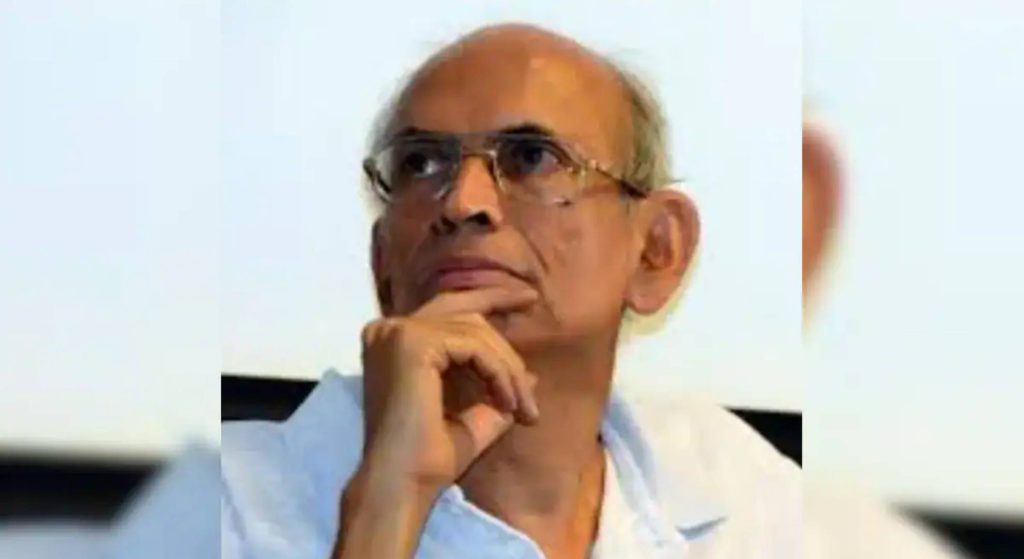Madhav Gadgil, an Indian ecologist has won the UNEP’s 2024 Champions of the Earth Award in the Lifetime Achievement category, at the on-going COP16.
Mr Gadgil has spent decades protecting people and the planet through research and community engagement. From landmark environmental impact assessments of state and national policies to grassroots environmental engagement, his work has greatly influenced public opinion and official policies on the protection of natural resources. He is renowned for his seminal work in the ecologically fragile Western Ghats region of India, which is a unique global biodiversity hotspot, UNEP said in a statement.
Among many, one of his notable contributions was as the head of The Madhav Gadgil Committee. The committee was constituted by the erstwhile Ministry of Environment and Forests to protect , preserve, and rejuvenate the Western Ghats in 2010.
Along with Mr Gadgil, the UN Environment Programme (UNEP) announced the names of five more recipients of the 2024 Champions of the Earth. This year’s laureates include a minister of Indigenous Peoples, an environmental defender, a sustainable agriculture initiative, an Indigenous rights advocate, a scientist focused on afforestation and a pioneering ecologist.
UNEP’s 2024 Champions of the Earth:
Sonia Guajajara: Minister of Indigenous Peoples, Brazil, honoured in the Policy Leadership category. She has been advocating for Indigenous rights for more than two decades. Guajajara became Brazil’s first Minister of Indigenous Peoples and the country’s first female Indigenous minister in 2023. Under her leadership, 13 territories have been recognized as Indigenous land to ward off deforestation, illegal logging, and drug traffickers.
Amy Bowers Cordalis: an Indigenous rights advocate honoured in the Inspiration and Action category, is using her legal expertise and passion for restoration to secure a better future for the Yurok tribe and the Klamath River in the United States. Cordalis’ work to restore the river ecosystem and encourage the adoption of sustainable fishing practices demonstrate how bold environmental action can bring significant positive change, while upholding Indigenous Peoples’ rights and livelihoods.
Gabriel Paun: a Romanian environmental defender honoured in the Inspiration and Action category, is the founder of NGO Agent Green, which has been helping save thousands of hectares of precious biodiversity in the Carpathians since 2009 by exposing the destruction and illegal logging of Europe’s last old growth forest. Paun has received death threats and been physically attacked for his work in documenting deforestation in an area that is vital for the ecosystem and supports unique biodiversity such as lynx and wolves.
Lu Qi: a Chinese scientist honoured in the Science and Innovation category, has worked in science and policy sectors for three decades helping China reverse degradation and shrink its deserts. As Chief Scientist of the Chinese Academy of Forestry and founding President of the Institute of Great Green Wall, Lu has played a key role in implementing the world’s largest afforestation project, establishing expert research networks and partnerships, and boosting multilateral cooperation to stem desertification, land degradation and drought.
SEKEM: a sustainable agriculture initiative honoured in the Entrepreneurial Vision category, is helping farmers in Egypt transition to more sustainable agriculture. Its promotion of biodynamic agriculture plus afforestation and reforestation work has been transforming large swathes of desert into thriving agricultural business, advancing sustainable development across the country.
An estimated 3.2 billion people worldwide are impacted by desertification. By 2050, more than three-quarters of the world’s population is expected to be affected by droughts.
“Almost 40 per cent of the world’s land is already degraded, desertification is on the rise and devastating droughts are becoming more regular. The good news is that solutions already exist today, and around the world, extraordinary individuals and organizations are demonstrating that it is possible to defend and heal our planet,” said Inger Andersen, Executive Director, UNEP.
“The efforts of the 2024 Champions of the Earth stand tall as a reminder that the fight to protect our land, our rivers and our oceans is a fight we can win. With the right policies, scientific breakthroughs, system reforms, activism, as well as the vital leadership and wisdom of Indigenous Peoples, we can restore our ecosystems.”
It must be noted that in March 2019, the UN General Assembly adopted a resolution declaring 2021–2030 the UN Decade on Ecosystem Restoration. UNEP’s #GenerationRestoration campaign aims to support accelerated progress on these commitments by rallying support for the 2030 Agenda to carry out vital ecosystem restoration work to protect 30 per cent of nature on land and sea and rehabilitate 30 per cent of planetary degradation. Globally, countries have pledged to restore 1 billion hectares of land by 2030, while current trends suggest 1.5 billion hectares would need to be restored to meet the 2030 land degradation neutrality goals.












